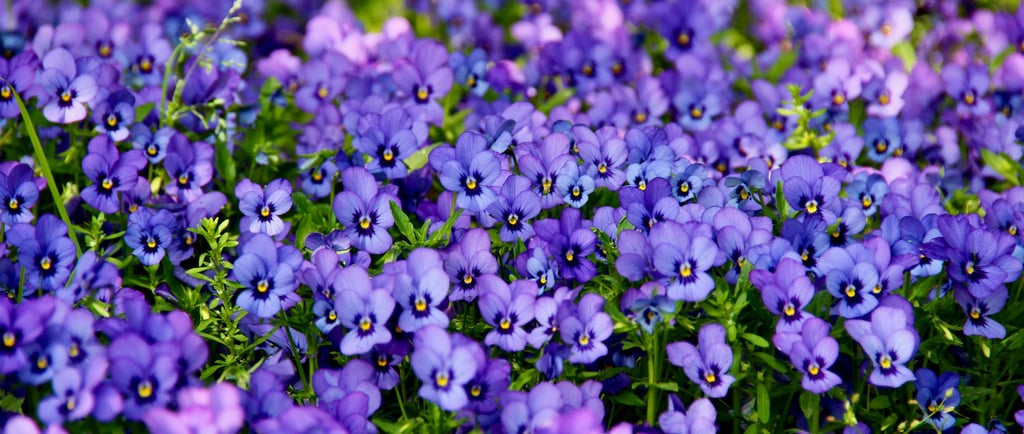Viola: The Quiet Power of Wild Grace
Often overlooked for its delicacy, Viola (Violet) holds deep ancestral wisdom. Both food and gentle medicine, this wild bloom supports the lymph, calms inflamed tissues, soothes the heart, and teaches us that vulnerability can be a form of strength. Let this tender green be your companion in both nourishment and healing.
PLANT WISDOM JOURNAL
Sigita Gyva


Violet – Food and Medicine
Both garden-grown and wild varieties of violet are so familiar that we often feel no need to describe them. But perhaps we should. What we grow used to, we tend to overlook. And in truth, the Lithuanian name for this delicate flower doesn't quite capture its essence or character.
When you hear the Latin word Viola, you might first think of the musical instrument – the viola or violoncello – known for its rich, soft tones that add warmth to orchestral arrangements. But Viola as a plant is just as nuanced. The genus includes many species and subspecies: field violets, dog violets, slope violets, tall and low-growing types, and the better-known fragrant and tricolor varieties. These last two are especially recognized for their medicinal uses and have been valued for centuries for their culinary, healing, and even aesthetic qualities.
Botanical Background
Belonging to the Violaceae family, violets are native to Europe and Asia, though now found around the world. They grow in shaded, moist meadows, along pathways and roadsides. Some species thrive in forests (e.g., Viola reichenbachiana), others in wetlands (Viola epipsila). If foraging, be aware: some violet species are endangered (like Viola stagnina and Viola uliginosa). Only harvest where they grow abundantly and never take from rare populations. These tiny woodland gems are to be protected, just as they gently protect us.
Culinary Delights
Violet blossoms are more than eye candy – they offer subtle flavor too. With a mildly sweet, grassy taste, they pair beautifully in salads, desserts, and drinks. The petals can be candied, used to decorate cakes, or frozen into ice cubes for a touch of elegance in cocktails.
Wellness Gifts
Violets have long been prized for their medicinal properties. They contain flavonoids, saponins, and mucilage, all associated with various wellness-supportive effects. In traditional herbalism, violets were used to soothe respiratory issues, support skin, and aid lymphatic and urinary systems.
Violet's Healing Nature
Anti-inflammatory and antioxidant support: The flavonoids in violets are known to help reduce inflammation and oxidative stress. While some refer to this plant as "anticancer," it's more accurately seen as an alterative—a plant that works gently, cleansing the lymph, blood, interstitial fluids, joints, and skin. Unlike many alteratives that are drying, Violet is moistening and cooling, making it especially valuable when that energetic quality is needed.
Spring tonic food: Violet is food before it's medicine. It can be used in salads, soups, juices, smoothies, pestos, meads, or frozen in ice cubes. Rich in minerals and vitamins (A, C, calcium, magnesium), it's an excellent gentle alternative to Nettle for those who find Nettle too drying. Violet helps reinvigorate the body after long winter months.
Respiratory relief: Traditionally used for bronchitis and whooping cough, Violet excels when respiratory tissues are hot and dry. It helps soothe irritated bronchial pathways and quiets unproductive, dry coughs by moisturizing tissues. Especially helpful in bronchitis, colds, asthma, or respiratory infections with swollen lymph nodes.
Lymphatic stagnation: Violet is beneficial when lymph nodes are swollen or when post-infection fatigue lingers. It helps clear metabolic waste and reduce chronic low-grade inflammation.
For the skin: Violet extracts are common in natural cosmetics due to their hydrating and calming properties. Used in creams, salves, or poultices, they help soothe eczema, psoriasis, cradle cap, acne, rashes, wounds, or inflamed skin. Chronic skin issues should also be addressed internally, as Violet helps purify the system as well.
Violet's Emotional and Energetic Support
Mentioned by Homer and Virgil, Violets were sacred to the Greeks. Used to calm anger, promote sleep, and comfort the heart, they were believed to relieve headaches and dizziness. Ancient Celts associated Violets with beauty and healing, and Anglo-Saxon herbals prescribed them for wounds and stomach ailments.
Emotionally, the "Violet person" is often shy, socially anxious, and introverted. When we suppress our emotions – often due to early experiences of rejection or invalidation – they can stagnate in the body. Violet, with its cooling, moistening qualities, gently supports the release and movement of suppressed feelings, especially grief, frustration, or deep-seated anger, through the lymphatic system.
In its fragility, Violet teaches strength. In its softness, it holds courage. In openness, it reveals the power of vulnerability.
In Closing
The small, modest, and delicate plants often hold the greatest power. Violet offers beauty, nourishment, and healing. Whether you're sipping tea, savoring a violet-infused dessert, or simply admiring a fresh bouquet, pause to honor the quiet gifts of this plant. For Violet is always more than she seems.
If you're called to welcome Violet into your own apothecary, you’ll find her waiting gently here.
Disclaimer & Holistic Responsibility Statement
At Manua, we honor the deep roots of ancestral plant wisdom. Every offering shared on this platform reflects traditional herbal knowledge and our own lived experience with nature's remedies. However, it is essential to approach wellness with discernment and personal responsibility.
Our products and content are not intended to diagnose, treat, cure, or prevent any disease.
All descriptions, including uses and benefits, are provided for educational and informational purposes only, and are based on traditional uses, folk practices, and naturalist perspectives.
This offering is not a substitute for professional medical advice, diagnosis, or treatment. We do not make medical claims and we do not encourage replacing prescribed care with herbal preparations.
We strongly encourage each individual to make health decisions with intention – guided by multiple sources of information, personal experience, and the support of a trusted healthcare provider. Always consult with your physician, naturopath, or clinical herbalist if you are pregnant, breastfeeding, taking medications, or navigating a specific health condition.
Nature’s path is personal. Trust your intuition. Listen to your body. Seek wisdom where it aligns with your truth.
Gather with us in the wild web
Living closer to nature, through learning and presence.
Letters from the Wild
© 2025. All rights reserved.
